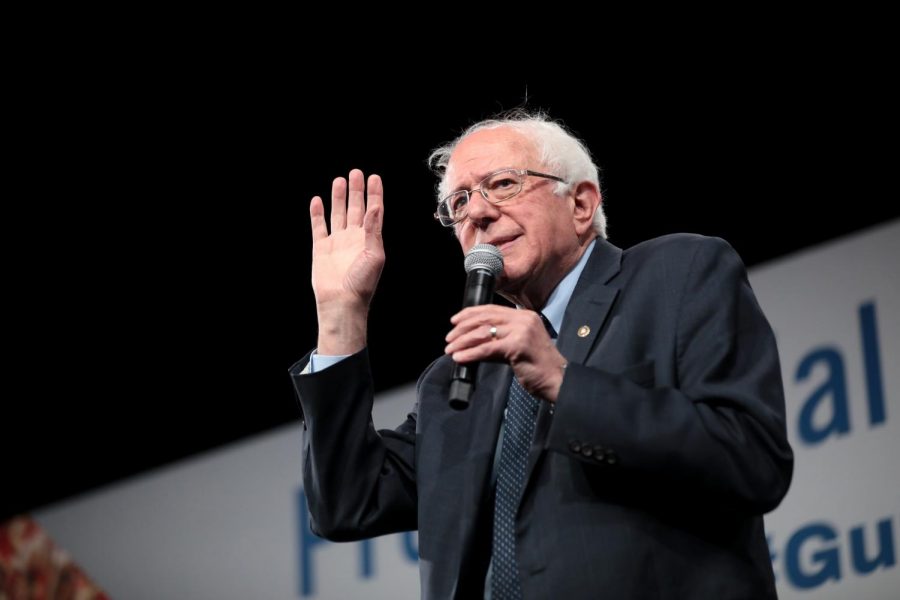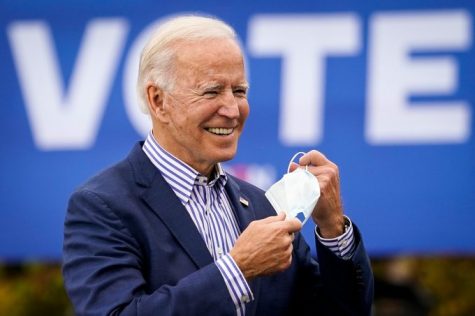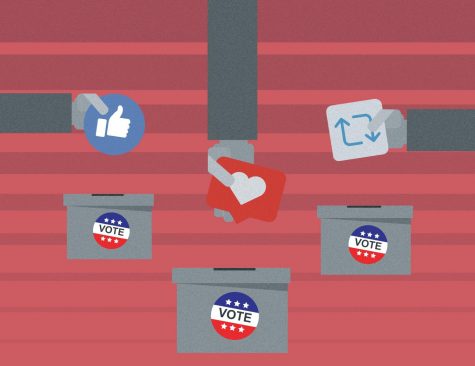Sanders Campaign Divided Democratic Party
Senator Sanders (D-VT) suspended his campaign for the 2020 presidential election. (Courtesy of Flickr)
April 22, 2020
Bernie Sanders may have endorsed Joe Biden with a smile and a remark about friendship, but one could speculate about the true implications of this endorsement. While I am sure that Sanders and some of his supporters wanted nothing to do with a Joe Biden endorsement, it was an inevitable consequence of introducing their views into mainstream politics. At the end of the day, it’s all about party leverage, and Bernie Sanders has a lot of it.
When Sanders came into the limelight in 2015, he was a relatively unknown senator with little leverage in the Democratic Party. But by the time the 2016 convention rolled around, his campaign had exploded in popularity. The Democratic National Convention (DNC) seemed to largely ignore the possibility of a Sanders nomination, and it backfired on them dearly. As a result, one in 10 Bernie Sanders supporters voted for Donald Trump in the general election. Former Secretary of State Hillary Clinton now accredits Bernie Sanders for being the change agent who caused “lasting damage” to her campaign.
Many of his supporters said the ideas of free college and universal healthcare were the legacies of Franklin D. Roosevelt. Sanders was a revolutionary “democratic socialist,” and any comparisons to failed socialist experiments were inaccurate. Many supporters praised him as an unafraid liberal who didn’t need to cut deals with his enemies or reserve his political capital — he was the man that would gut the system and rebuild it from the inside.
The truth is, in the colorful world of politics, Sanders’ spectrum is black and white. He is unwilling and unable to compromise or cut deals with the opposition party, and it’s one of the reasons there are still lingering tensions between Sanders and the Democrats. Many of his supporters boast that a long record serving in Congress is his shining achievement, but beyond his tenure, there is nothing noteworthy about his record. In the age of modern Congress, Bernie Sanders is not a pinnacle of achievement, but actually the opposite. He was known to vote “No” on bills like the Magnitsky Act that didn’t go far enough rather than try and move it in the right direction. Despite the damage this practice causes, Sanders never seemed to care. He had no room for compromise or anything that didn’t fit his agenda.
Since 2016, Sanders has controlled an extremely loyal fanbase, and they reflect his do-or-die politics in Congress. At face value, they aren’t very divisive, but populist movements have always had that effect (no matter the message). This divisiveness became very clear in the debates: as a lesson learned from the last primary, his opponents desperately tried to maneuver their attacks on him without losing votes from his supporters. This time, Bernie Sanders had a change in strategy. He used his contest with Hillary Clinton four years ago to establish himself in the party, and now he didn’t have to settle for anything or anyone: he was the no-compromise candidate, and even the leaders of the progressive movement could not stop the growth of the Sanders movement.
There’s no doubt about it: Elizabeth Warren’s candidacy was destroyed by the divisiveness of Bernie Sanders’ populism. In my mind, what set Sanders supporters apart from Warren supporters was their sense of progressive pragmatism.
Warren’s plan to pass the most crucial aspects of Medicare-for-All in stages through a Republican Senate was received by her supporters as a smart and careful compromise; to Sanders’ supporters, Warren was bending the knee. Warren and her supporters knew it would be hard to pass universal healthcare in capitalist America, and they were willing to accept that.
Compromise is a funny thing. While I believe liberalism and conservatism require compromise, not everybody does. Yet, the U.S. Constitution has made political compromise an absolute necessity.
I will hand Bernie Sanders an ideological victory. However, some divisive policies may have detrimental affects on the 2020 election for Democrats – up to his loyal supporters to determine if they remain loyal to
Luke Morgan, GSB ’22, is a finance major from Spring Lake Heights, N.J.












It’s incredibly interesting that in your article you claim Bernie Sanders is incapable of seeing beyond ‘black and white,’ when your own article lacks any nuance whatsoever. I will speak in particular to your reference to Elizabeth Warren, and her ‘smart and careful compromise’ on Medicare for All, as you put it. I’m going to make the assumption based on your push for pragmatism that you personally have never pushed off essential medical procedures due to fear of payment; that you have never neglected to see a doctor because you did not have insurance. If you had suffered from these things, you would understand that there can be no ‘compromise’ on the need for truly universal, free at point of access healthcare. But people who have never lost loved ones from pushing off care (as they could not afford it) are incapable of understanding this.
I would also encourage you to read the numerous studies that have emerged which found little evidence that the incremental change policy proposed by Elizabeth Warren, which involve the creation of an intermediary program that includes both federal and private industry, would be less disruptive than simply transitioning to a federal program initially. I would also encourage you to look at the Dutch model — often cited as a model the US should be following, and the disaster that such an incremental model proved to be in terms of equity and efficacy in terms of healthcare access. You’re correct that passing any universal coverage will be difficult in America; therefore, passing even intermediary bills (as proposed by Elizabeth Warren) will still be difficult. Are you now understanding why Medicare for All proponents rejected Elizabeth’s bill?
I will, finally, touch on your baseless claim that “Bernie Bros” held out against Warren’s plan, claiming if universal coverage was not passed “billionaires would suffer consequences.” Did you research anything for this article, or did you use Twitter fights as your primary sources? I don’t even understand what you are referring to. The hold out was never to make “billionaires suffer” it was to provide comprehensive, equitable, and free at point of access care to ALL. You’re correct in your assertion that Bernie Sanders views universal healthcare as a ‘black and white’ issue. It IS a black and white issue when some people can afford to survive, and others cannot. I hope your next article is edited before it is posted.